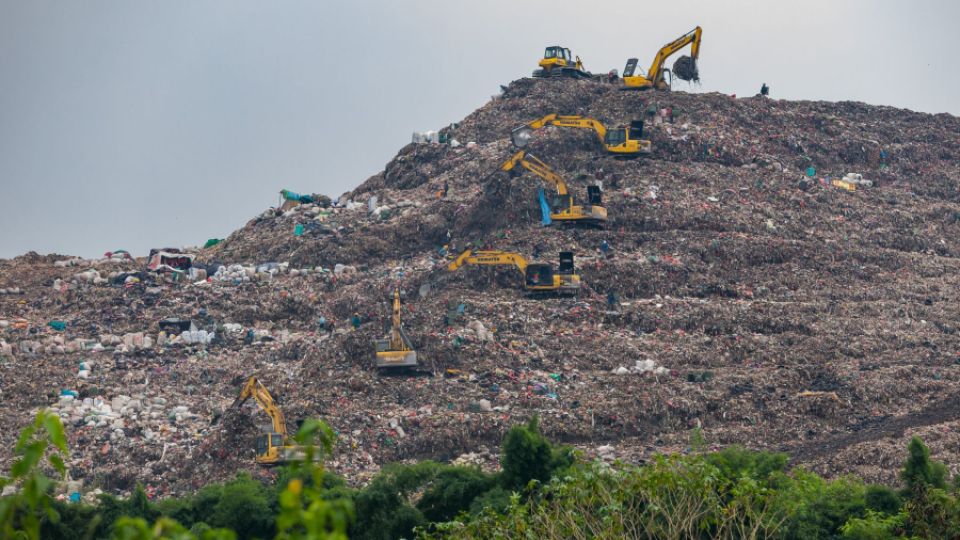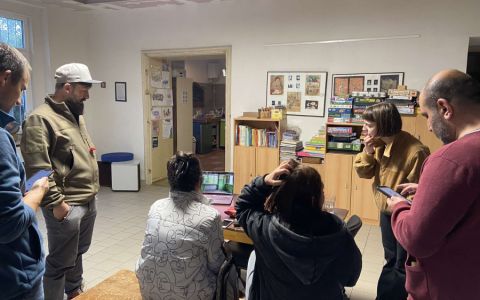Indonesia is known for its white-sand beaches, exotic cuisine, and restless volcanoes. What tourists don't normally see, however, are mountains of waste and small “volcanoes” in the form of plants burning more than just plastic waste. These are examples of poor waste management consequences.
!! CHECK THE PHOTO GALLERY FROM OUR MISSION TO INDONESIA HERE !!
We visited the city of Bekasi for the first time in December 2022. It is located next to Jakarta, the capital of Indonesia, from where municipal waste flows into Bekasi, which has been delivered to a giant landfill for the last 30 years. The Bantar Gebang landfill is the size of 200 football fields and is more than 45 meters high, making it one of Asia's largest landfills. A new waste incinerator has been operating at this landfill since 2019. It is currently only running in test mode and processes 100 tonnes of waste per day. It will soon increase its capacity to process up to 2,000 tonnes of waste daily.
We also returned to Karawang town, where plastic waste and old tires are used to make lime. Burning these materials without smoke filtration significantly pollutes the surrounding environment. Our recent study in Karawang confirms the presence of high levels of toxic substances, such as dioxins, in the food chain around the lime plant.
At these two sites, we collected soil, river sediment, and egg samples. You can see how this was done in the video:
Dumping of waste or its incineration, whether open burning like in Karawang or the incinerator at Bantar Gebang landfill, is different than the way to go for sustainable waste management. Especially in a country like Indonesia, where toxic residues from waste incineration can be further used, for example, in the construction industry. Among other things, they are used to make bricks that are used to pave pavements within the incinerator site, through which poisons can spread and linger for decades. Therefore, we brought one of these bricks with us to the Czech Republic and will be analyzing it in detail.
Improper waste management exacerbates the problem of the spread of toxic substances that are deliberately added to plastics during manufacture or produced at the end of their life cycle during incineration. In addition, Indonesia, unfortunately, lacks the technical capacity to monitor the presence of persistent organic pollutants produced during incineration. In practice, it is impossible to measure the emissions produced. Thus, our Indonesian partners at Nexus3 Foundation depend on collaboration with foreign laboratories to monitor the cycling of substances hazardous to the environment and human health. We at Arnica are helping them to do just that.
We determine the impacts of unsustainable waste management on local people and the environment by comparing the results of the analysis of the samples we collect with those from the Cisarua area, which is also on the island of Java, but in an area not affected by industrial pollution. We will inform you of the results in our publications and press releases.








